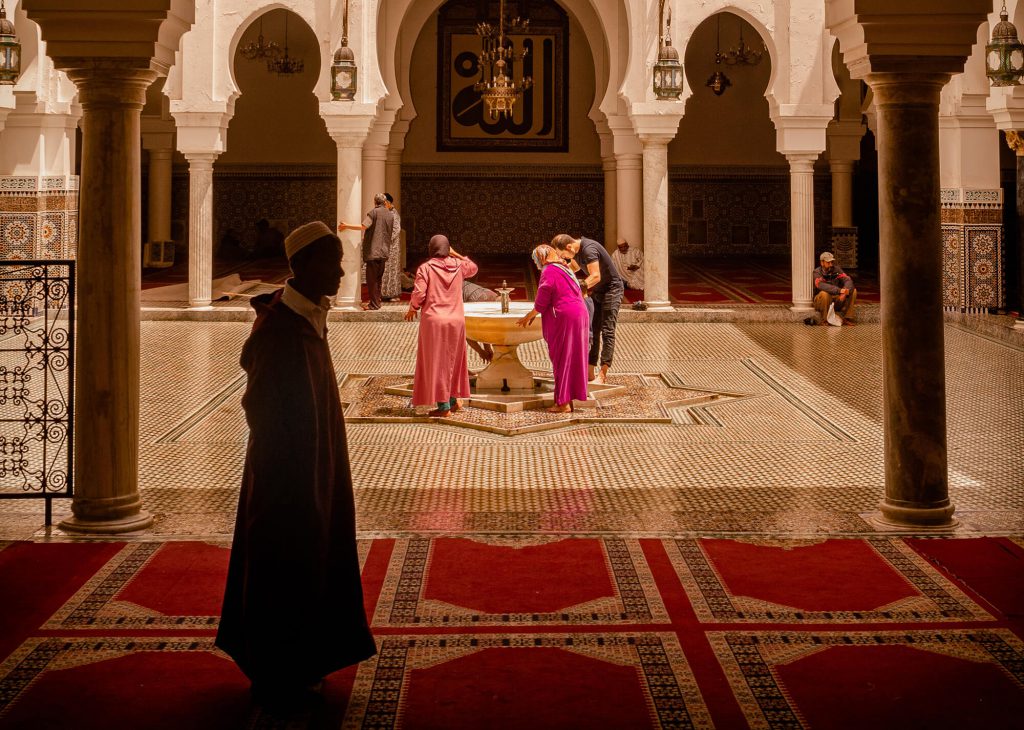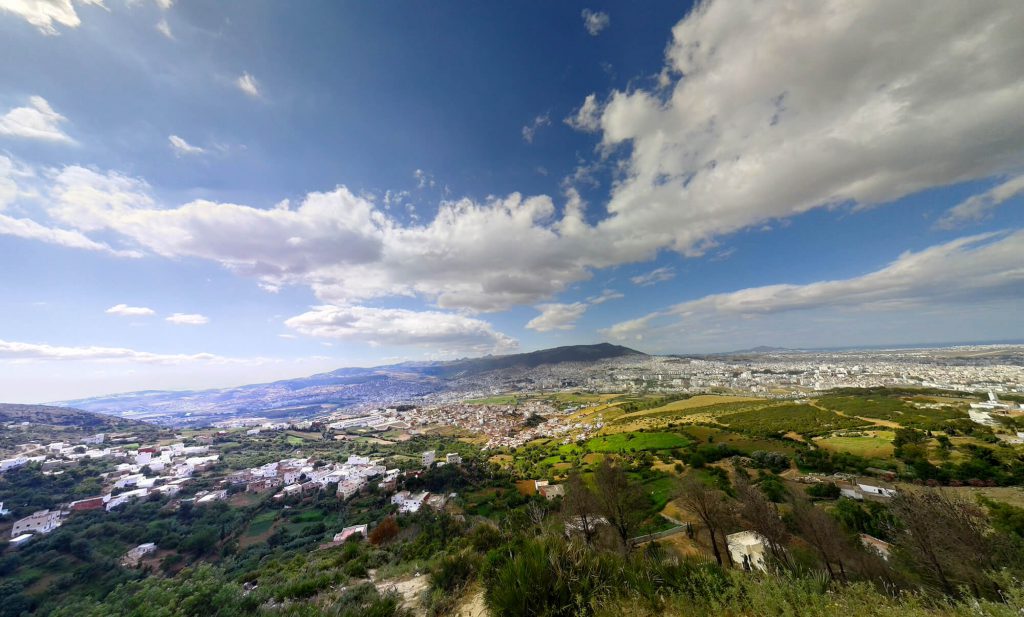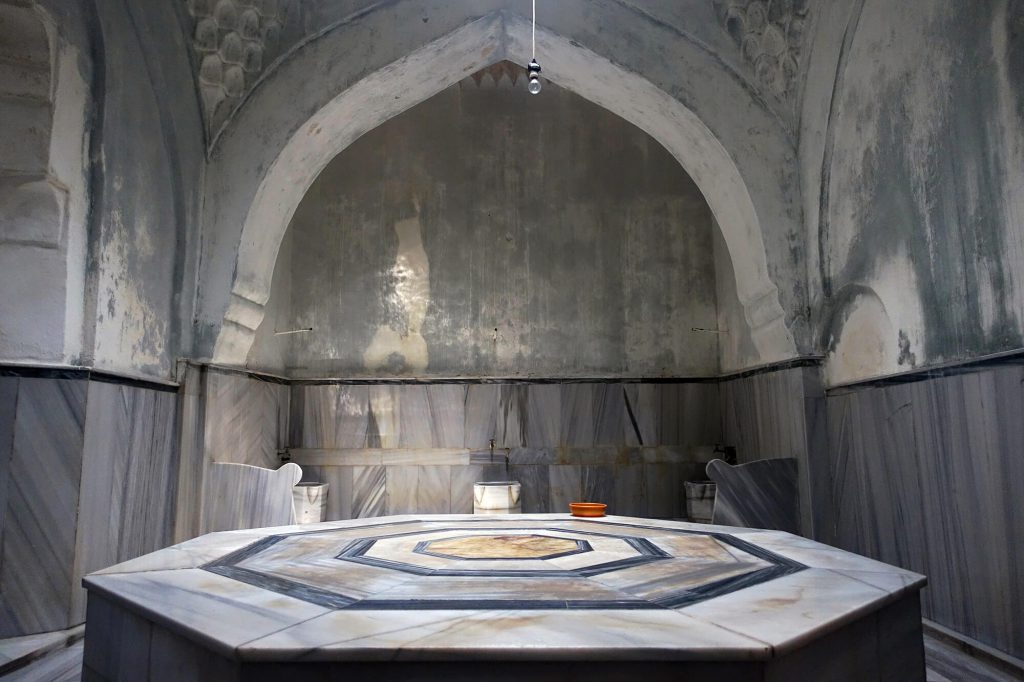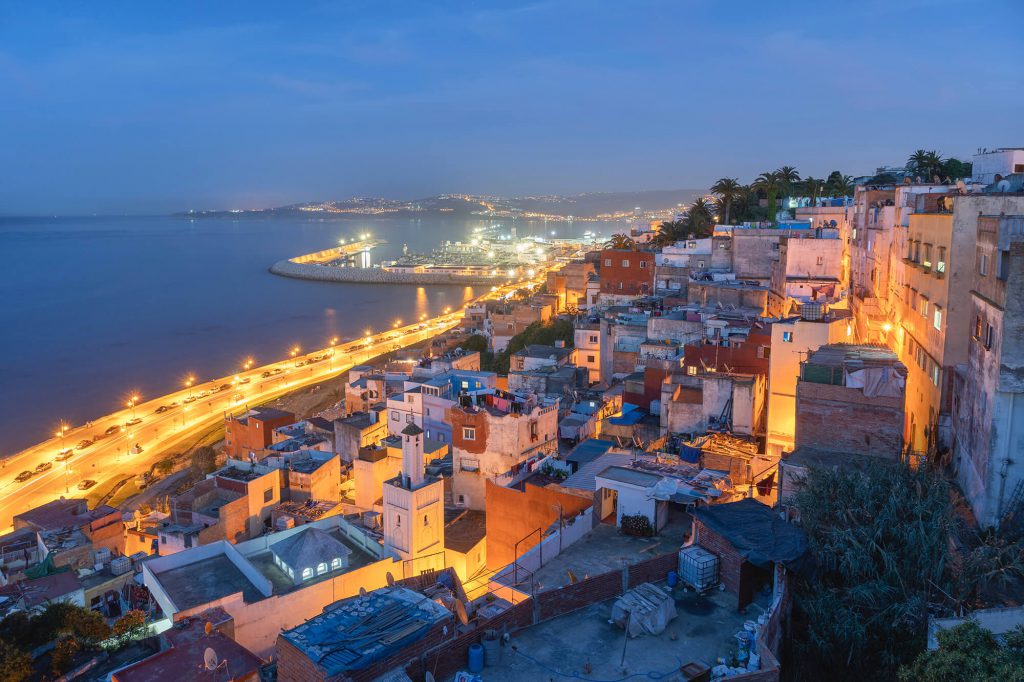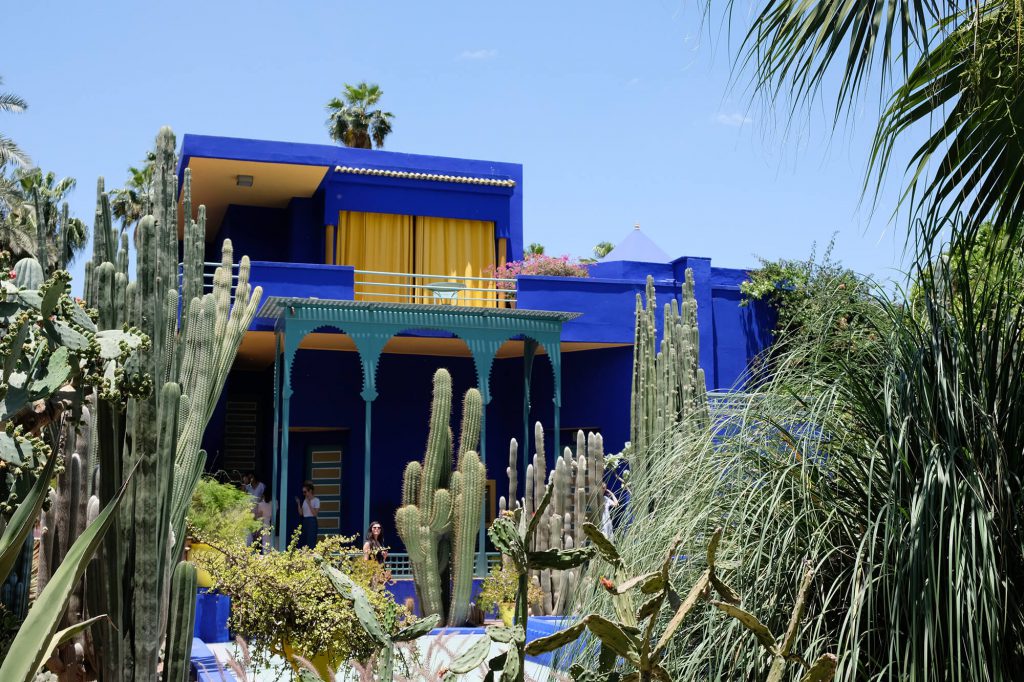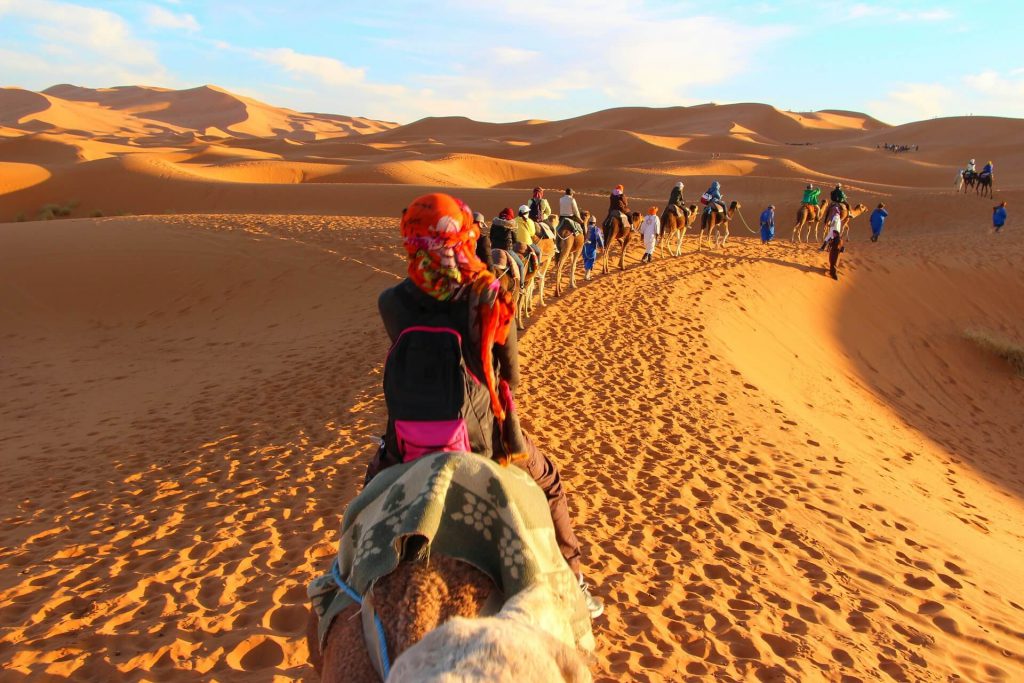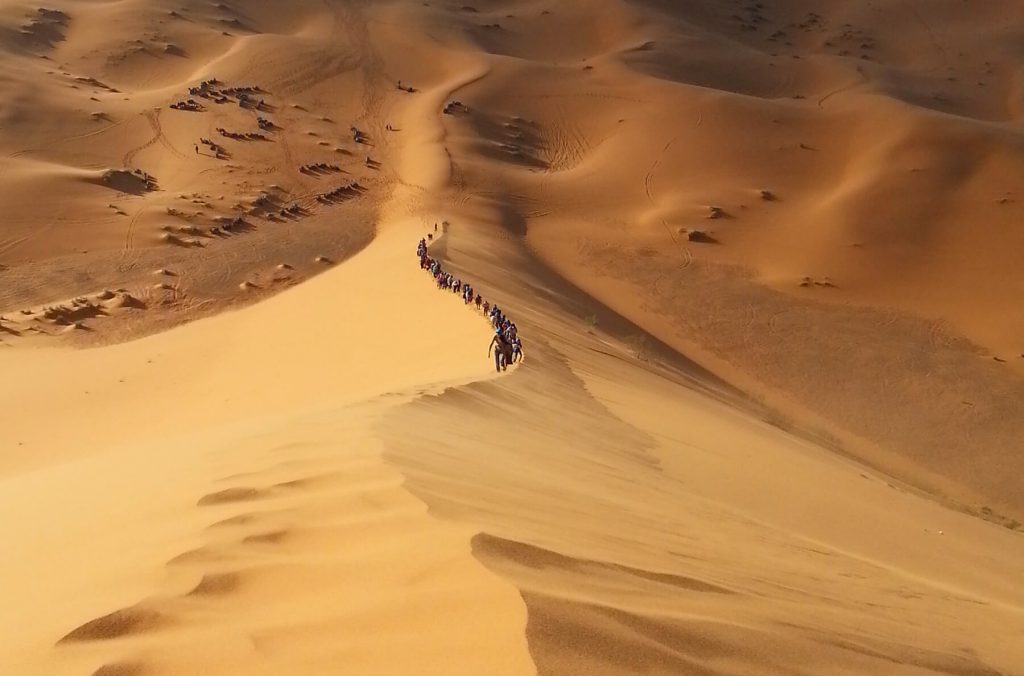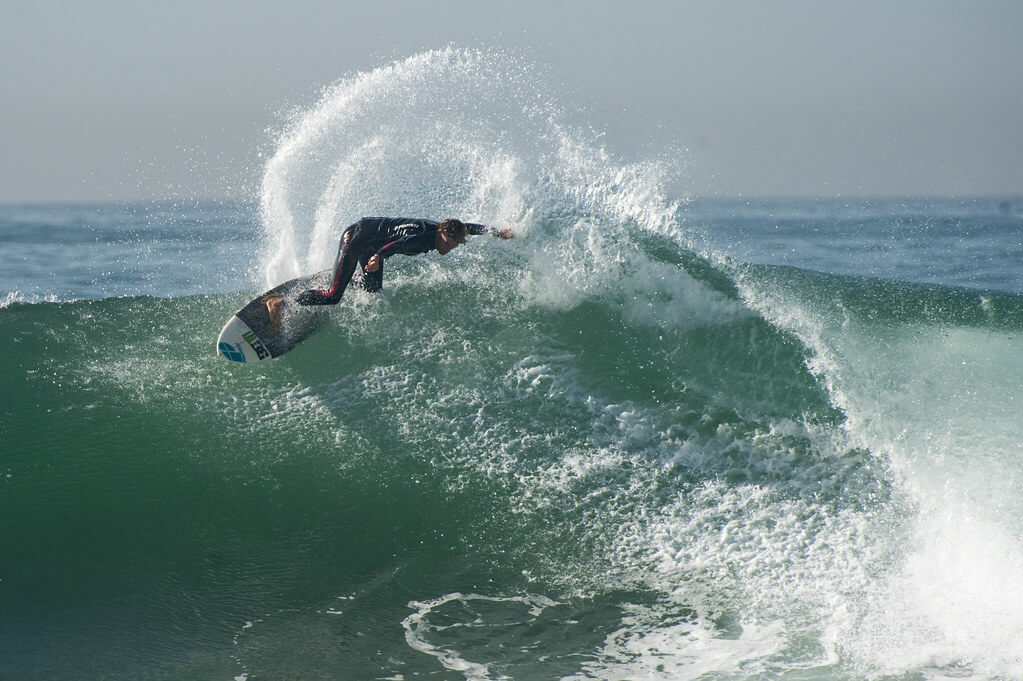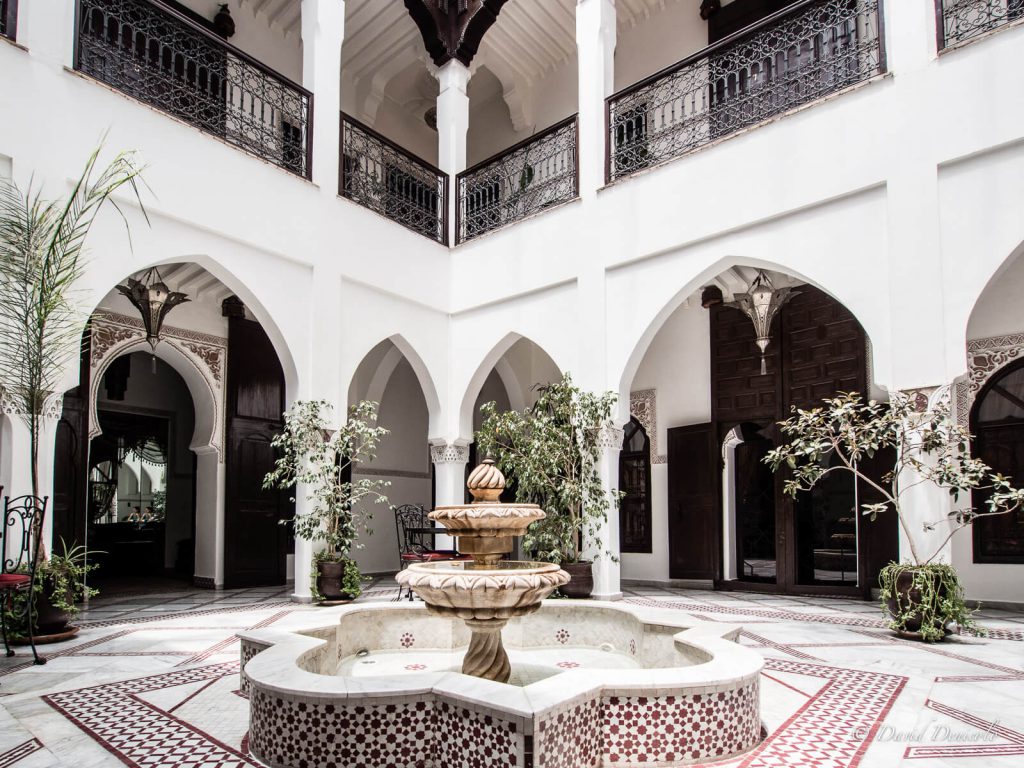Planning a trip to Morocco? Here are some helpful tips to familiarize you with what to expect from this enchanting country. A little knowledge goes a long way and locals will definitely appreciate your efforts.
Traveling through Morocco and learning about its culture is as much about connection as it is about discovery. From the bustling souks of Marrakech to quiet Berber villages in the Atlas Mountains, Moroccan hospitality is legendary. Understanding the local etiquette will not only earn you respect but also open doors to genuine cultural exchange — whether you’re sharing mint tea with a host family, visiting a mosque, or exploring the desert.
Morocco is a religious yet welcoming country where Islam, Amazigh heritage, and Mediterranean traditions intertwine. About 99% of Moroccans are Sunni Muslims, and faith influences daily life, social norms, and celebrations. While conservative in custom, Moroccans are known for their warmth, curiosity, and generosity toward travelers.
Here are some essential cultural tips to help you navigate Moroccan customs with confidence and respect.
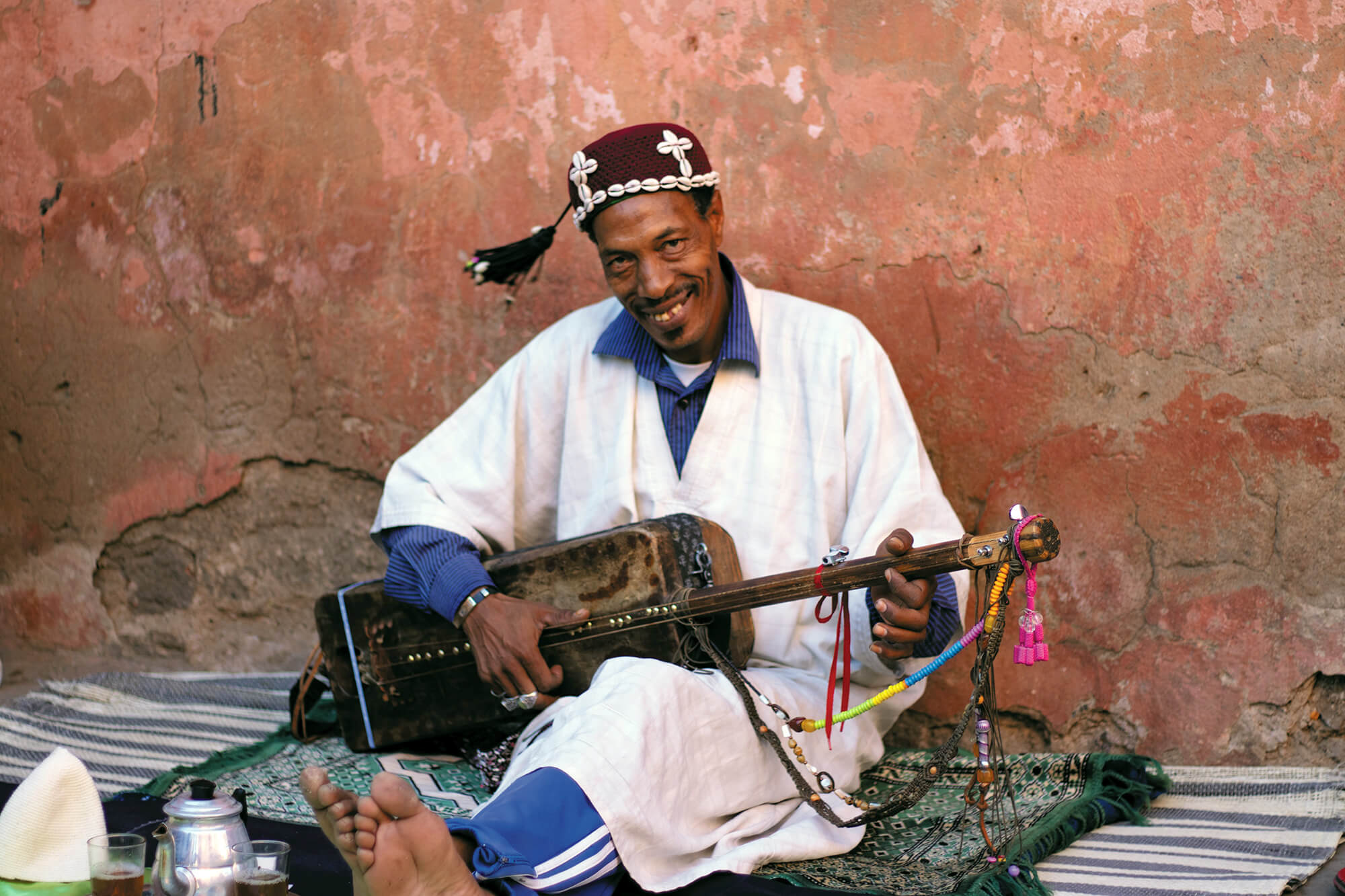
1. Greetings and Communication
Moroccans place great importance on greetings — they reflect kindness and respect. When meeting someone, it’s polite to begin with “Salam Alaikum” (peace be upon you), to which the reply is “Wa Alaikum Salam” (and peace be upon you too). In urban areas, “Bonjour” or “Salut” (from French influence) is also common.
- Men greet men with handshakes and sometimes a single cheek kiss between close friends.
- Women greet women with two or three cheek kisses.
- Between men and women, physical contact is avoided unless the woman extends her hand first.
- Placing your right hand on your heart after greeting expresses sincerity and warmth.
When addressing elders, use titles like Sidi (Mr.) or Lalla (Ms.), followed by the person’s first name.
2. Dress Code and Modesty
Respectful attire is deeply valued in Morocco. Dressing modestly shows cultural awareness and helps travelers — especially women — feel more comfortable in public.
- Women: Avoid sleeveless tops, short skirts, or tight clothing. Opt for loose pants, maxi skirts, or long-sleeve blouses.
- Men: Should wear shirts covering the shoulders and avoid short shorts.
- Religious sites: Both men and women should cover shoulders, arms, and knees.
- In rural villages: Dress more conservatively to show respect for local traditions.
Even in modern cities like Marrakech or Casablanca, modesty is appreciated. For detailed advice, read our guide for Women Travelers in Morocco.
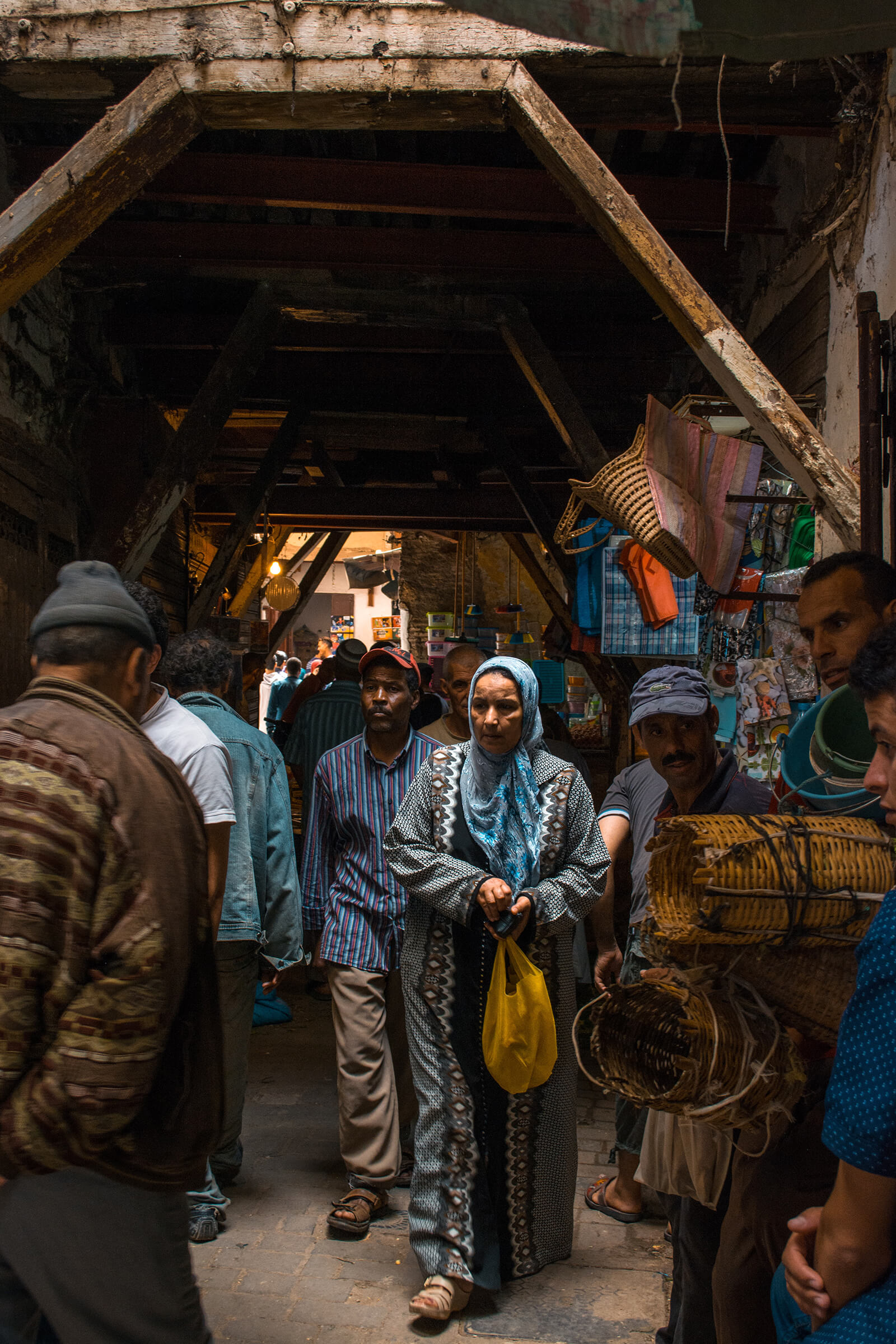
3. Visiting Homes and Hospitality
Moroccans are famous for their hospitality — being invited to someone’s home is a great honor. It’s important to know these basic customs not to offend your hosts or be disrespectful.
- Remove your shoes before entering the home and leave them outside. It’s also a good idea to plan ahead of time (if you can) to wear clean socks and ones that don’t have holes.
- Bring a gift: It’s customary to bring a gift to present to your host. Traditionally, people bring a cone of sugar or tea, but these days it’s more common to give a gift of flowers, nuts, fruits, or sweet pastries.
- Expect personal questions: Moroccans are pretty straight forward on the first meeting compared to the West and Europe. Don’t be surprised if you are asked about your marital status and whether or not you have children – they’re a sign of genuine interest, not intrusion.It’s acceptable to ask your host and others present about their family and well-being. Be cautious about giving compliments. Generally, they tend to make people uncomfortable and can be seen as too forward.
- Compliments: Since Moroccans are extremely generous, complimenting them on how beautiful an object or an article of clothing is they also might feel obliged to give it to you.
- Tea ritual: You’ll almost always be offered sweet mint tea — a symbol of friendship and hospitality. Accept it graciously.
Learn more about Moroccan homes and traditions in our post on Facts About Morocco’s Culture.
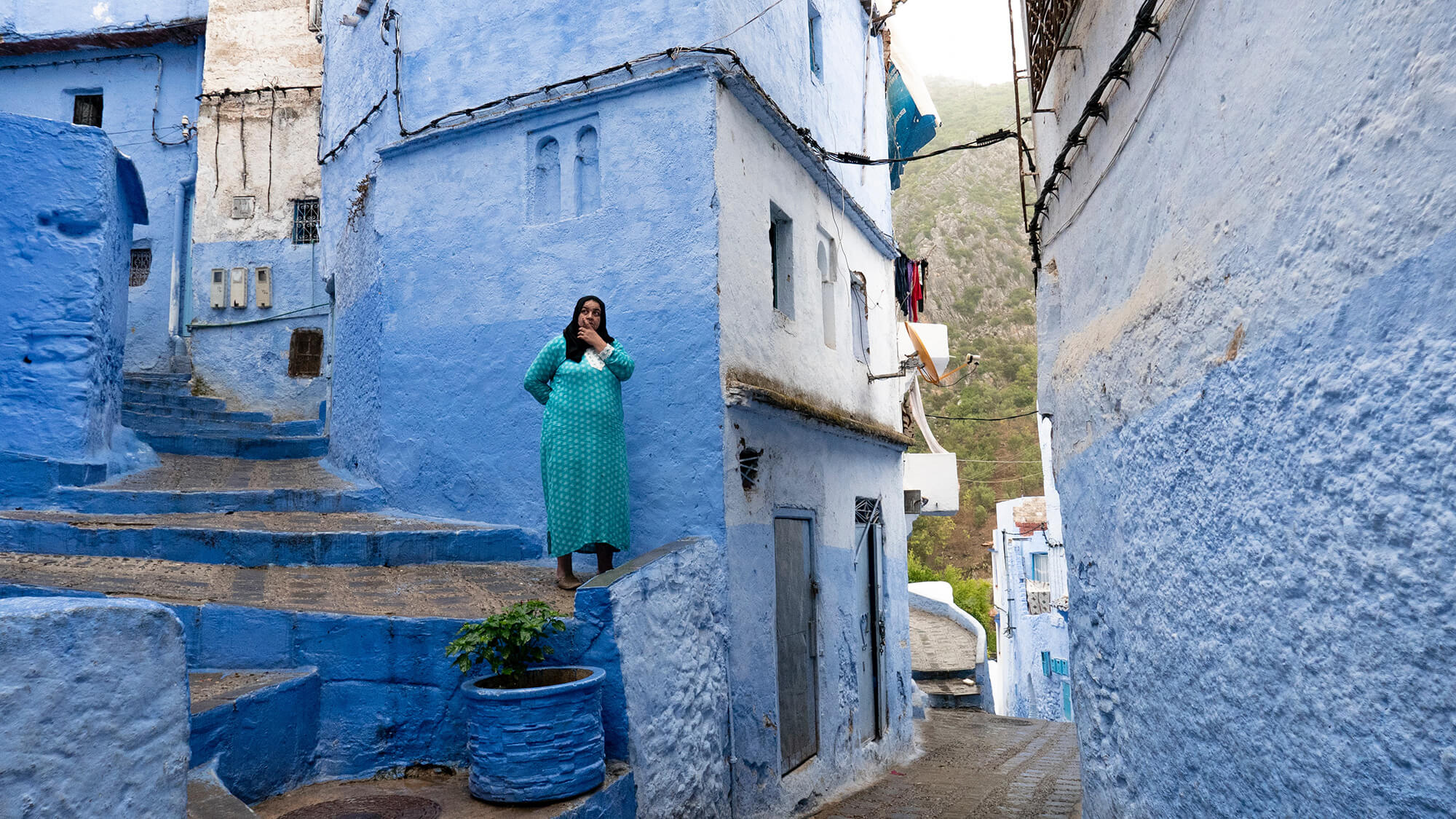
4. Dining Etiquette and Table Manners
In Morocco, sharing food is a communal experience. Meals often take place around a large dish — such as a tagine or couscous — placed in the center of the table. Most Moroccans tend to eat with their hands rather than use a knife or fork, especially in the home.
- Eat only using your right hand. The left hand is considered unsanitary as it is reserved for using the hygiene.
- Before the meal, hands are washed and this means a washing bowl is usually brought to the table, and water is poured over your hands to clean them.
- “Bismillah” means “in the name of Allah” and is said as a blessing at the beginning, and “Alhamdulillah” means “thanks be to Allah” at the end of the meal. You may impress your host if you say this at the meal.
- The food is blessed and then the meal may be eaten. Since the meal is served in a communal dish, eat only from the area right in front of you. Water is also usually served in a communal glass.
- You can use bread as a utensil to scoop food.
- Keep in mind not to wipe your hands on the tablecloth or lick your fingers. The washing bowl will be presented after the meal to clean your hands.
The ritual of mint tea follows most meals — always accept at least one glass to show appreciation. Learn more about Moroccan food in our article on Cuisine of Morocco.
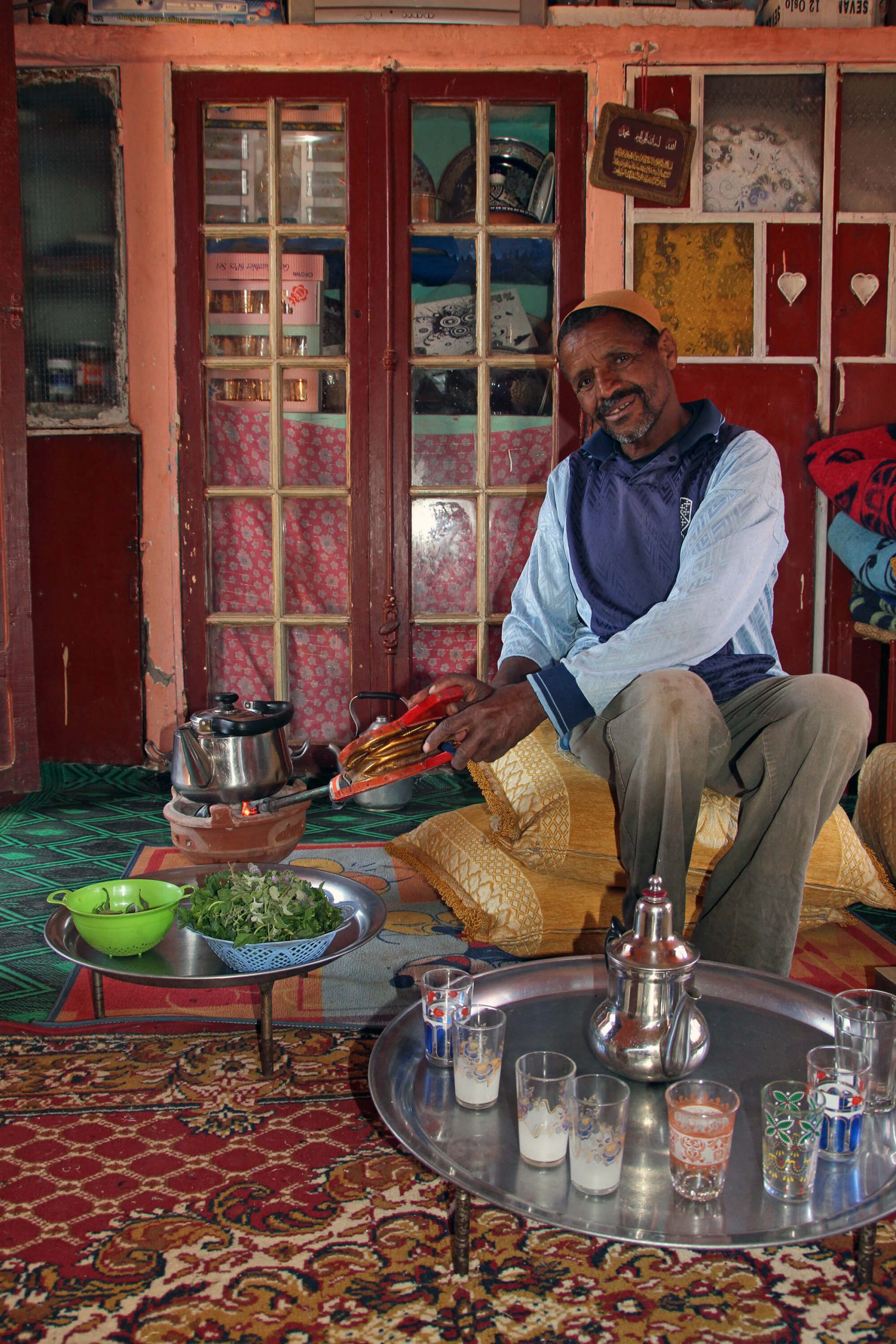
5. Alcohol and Public Conduct
While alcohol is available in many hotels, bars, and tourist restaurants, public drinking is forbidden.
- Muslims typically abstain, but tourists may drink discreetly in licensed venues.
- Never consume alcohol or show signs of intoxication in public places.
- During Ramadan, alcohol sales are restricted — avoid drinking around fasting individuals.
6. Ramadan Etiquette
Ramadan is a sacred month of fasting, prayer, and reflection. For the entire month, Muslims fast and refrain from eating, drinking, tobacco, and sexual activities or thoughts from sunrise to sunset. This does not mean that you must also fast, but it does mean that you should be respectful. Make conscious efforts to avoid eating or drinking in public places.
- After sunset, the fast is broken with “Iftar“, a meal often shared with family and neighbors.
- Travelers are often welcomed to join these meals.
- The festival Eid al-Fitr, at the end of Ramadan, is marked by joy, feasts, and charity.
The time of Ramadan changes every year, so it’s a good idea to find out when it will be when planning your trip.
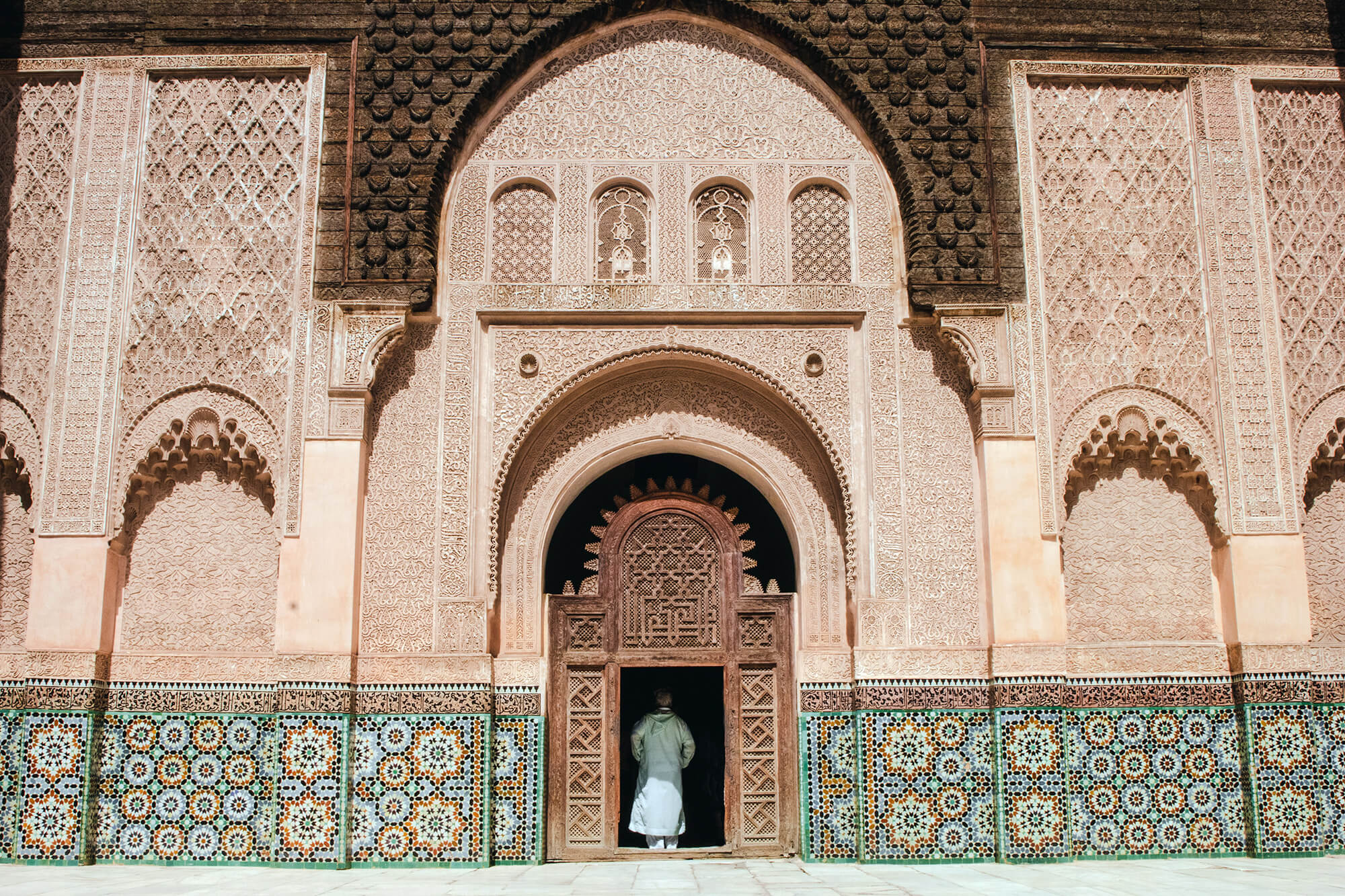
7. Mosques and Religious Etiquette
Most mosques are reserved for Muslims only, but respectful observation from outside is welcome. Non-Muslims can visit the Hassan II Mosque in Casablanca or Tin Mal Mosque in the Atlas Mountains.
When near a mosque:
- Avoid loud conversations or photography during prayer.
- Dress modestly — women should cover hair with a scarf if entering permitted areas.
- Remove shoes before entering prayer halls.
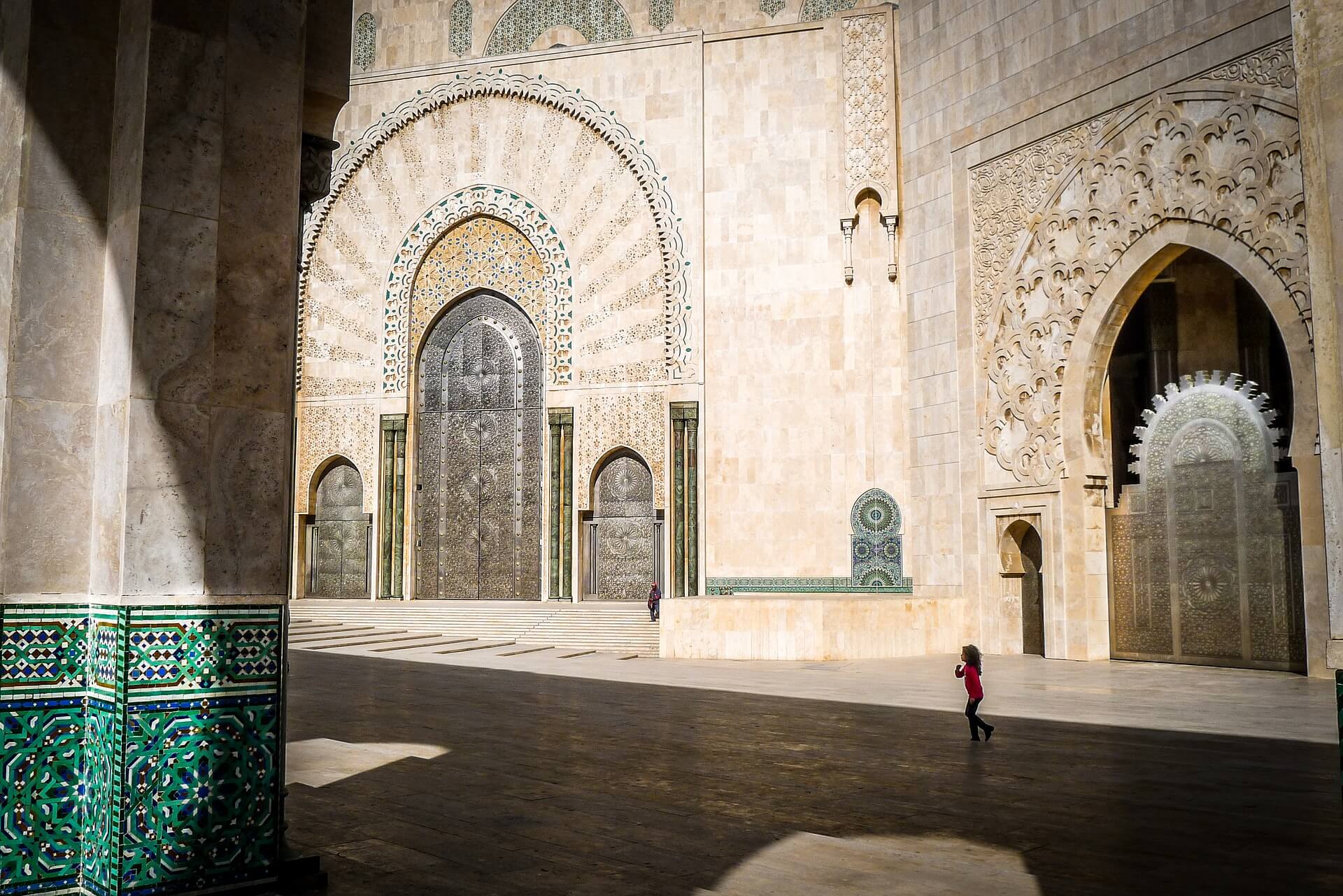
8. Tipping and Service Culture
Tipping is necessary and accepted everywhere: restaurants, cafes, and hotels. Usually, a tip of 3 to 5 dirhams is the standard. In restaurants, it’s an average of 10% on your bill. Taxi drivers are also tipped and will be grateful for your generosity. It is also customary to tip your tour guide as they are working hard to make sure you have an amazing holiday!
Here’s a general guide:
- Restaurants: 10–15% of the bill.
- Cafés: 3–5 MAD per drink.
- Hotel porters: 10–20 MAD.
- Taxi drivers: Round up the fare.
- Tour guides: 50–100 MAD for a full-day tour.
A small tip goes a long way to show gratitude and appreciation.
9. Everyday Etiquette & Local Customs
Gestures
Putting your hand on your heart generally means “thank you” or “peace be with you”
To beckon someone, place your hand downward and sweep your palm toward you. It is considered rude to use your pointer finger to ask someone to approach you.
Time and Punctuality
Moroccans tend to run on “Moroccan time” meaning they tend to be late for appointments or meetings and this is culturally acceptable for them. Expect most people to show up thirty minutes later than the time you planned on. Patience is a virtue, especially in social settings.
Public Behavior
When visiting, it’s important to respect local customs and cultural sensitivities. Avoid public displays of affection, as they may be considered inappropriate. Refrain from engaging in political or religious debates unless specifically invited to do so. Additionally, always ask for permission before photographing people, especially women, to ensure their comfort and privacy.
Being too polite
It’s always important to have good manners when traveling in any foreign country, but being too polite or friendly can sometimes be mistaken as an invitation for romance. Unfortunately, this tends to be the case if you’re a woman traveler in Morocco. Generally, Moroccan women tend to be more distant so your kindness could be misinterpreted as a romantic gesture.
10. How to Show Respect in Morocco
- Always greet before asking a question or starting a conversation.
- Accept tea when offered — it’s a gesture of friendship.
- Dress modestly and behave courteously in public.
- Learn a few Arabic or French phrases.
- Be patient — life in Morocco flows at its own pace.
For deeper insight, explore Facts About Morocco’s Culture — your ultimate cultural companion before you go. For even further knowledge of Moroccan culture, immerse yourself in the culture, be open to new customs, and observe people in public and private spaces.
🧭 FAQs
Q1: Is it okay to wear shorts in Morocco?
Yes, but knee-length is best. Women should wear skirts or pants that cover the knees, especially outside tourist zones.
Q2: Can non-Muslims enter mosques in Morocco?
Generally no, except for specific sites such as the Hassan II Mosque in Casablanca.
Q3: How do Moroccans greet each other?
With “Salam Alaikum” and “Wa Alaikum Salam” as a reply, followed by a handshake or cheek kiss depending on gender and familiarity.
Q4: Is alcohol allowed in Morocco?
Yes, in licensed venues — but never consumed or displayed in public areas.
Q5: Do you need to tip in Morocco?
Yes — tipping is customary in restaurants, hotels, taxis, and for guides.
—
Editor’s Note: This post was originally published in 2021 and updated in October 2025 for accuracy and freshness.
